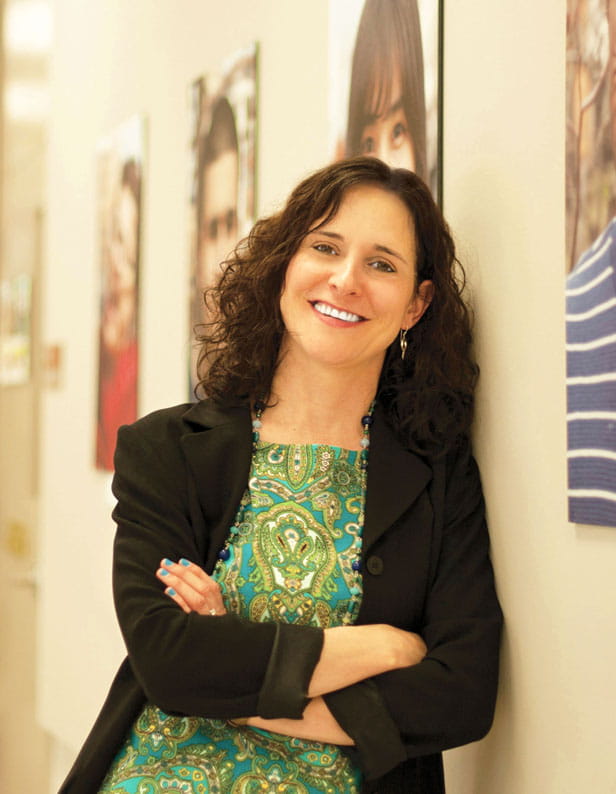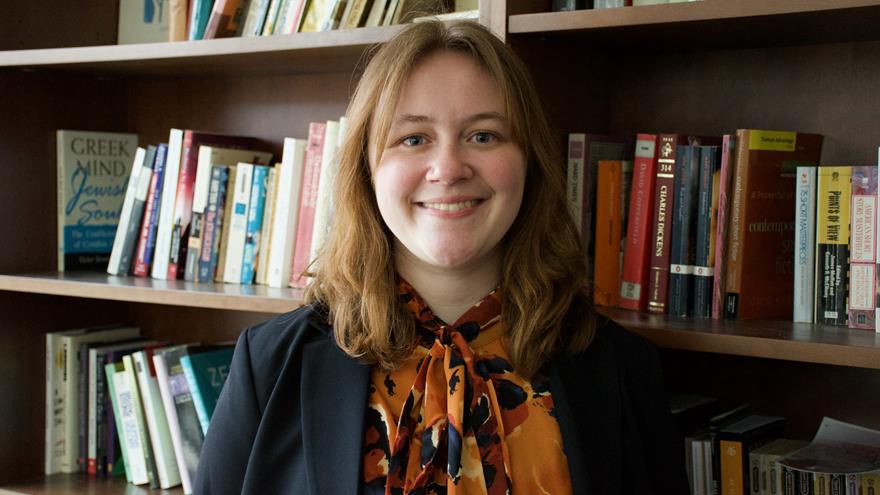Drexel Adopts National Standards for Addressing Campus Sexual Violence
 By Frank Otto
By Frank Otto
When it comes down to it, sexual violence prevention on college campuses depends almost equally upon policy and culture.
While the national conversation on the topic continues, Drexel’s Office of Equality and Diversity is making special efforts to ensure its investigation and adjudication procedures meet top standards while encouraging a proactive culture of prevention.
“We want to think about what our culture is,” said Michele Rovinsky-Mayer, associate vice president of the Office of Equality and Diversity. “What kind of culture do we want to have? When something comes to us, we want to connect people to resources on campus and help them to address the issue.”
Last year, the United States Department of Education released new guidelines on handling sexual violence and Title IX issues in higher education. In response, Drexel brought in a pair of national experts to conduct an audit on the University’s reporting standards and adjudication processes.
Rovinsky-Mayer is overseeing the implementation of recommendations suggested by the auditors, which she said will foster a more “fair and balanced” system for both the complainant and the accused in Title IX cases.

Changes to the Process at Drexel
One of the main reforms to the Drexel process is the appointment of an outside, experienced adjudicator to evaluate student-on-student cases. Previously, a student conduct board made up of students, staff and faculty would convene for each case.
“The guidance from the Department of Education was that students should not be part of that process,” Rovinsky-Mayer said. “It puts the parties in a difficult position in terms of disclosing and talking about this traumatic event in front of their peers.”
Additionally, the investigation into such cases is now headed by the Office of Equality and Diversity, as opposed to previous investigations that were run by the Drexel University Police Department’s detectives.
Students can still decide whether they want to pursue a criminal investigation in addition to or instead of the University’s investigation. A memorandum of understanding that already existed with the Philadelphia Police Department dictates that any sexual assault case will be investigated by the city’s officers instead of the Drexel Police.
During a criminal investigation, the Office of Equality and Diversity can and will continue to provide resources to both the complainant and the accused throughout the case’s progress. At the start of the process, the Office of Equality and Diversity speaks with each party to determine what types of assistance might be needed.
Those resources could include counseling, helping a victim navigate the process of acquiring a protection from abuse order, arranging academic assistance and/or connecting a person with external resources.
“The other thing we’ve done is that before our report is finalized, we review it, detail by detail, with both parties,” Rovinsky-Mayer said. “They can recommend changes and additions. They can recommend that we interview an additional person. They can provide additional evidence and information to us.”
Afterward, it’s reviewed again with each party before the adjudication process.
Both the complainant and the accused choose advisors who help them through the process. In the past, those advisors had to be part of the Drexel community.
Now, they can be someone brought in from outside the University, including lawyers.
Lastly, the Office of Equality and Diversity doesn’t just serve students. Drexel employees can come to the office in cases of stalking, domestic abuse and violence for help in seeking the proper resources.
“We do investigations when the alleged actor is a member of the Drexel community, but we provide resources in every case,” Rovinsky-Mayer said.
The Active Bystander
Rovinsky-Mayer said reports to her office for Title IX issues have increased, just as reports have increased overall nationally.
“The fact that they’re up here, I think, has to do with the national conversation about sexual assault prevention, the changes to our system, and we, as a university, being more willing to talk about these cases,” she said. “President [John A.] Fry identified Title IX as a priority and is committed to having a discrimination-free environment.”
Part of that willingness to speak plays into an initiative targeting the University culture.
Rovinsky-Mayer’s office is holding workshops beginning in May and running throughout the summer to promote a culture of the “pro-social, active bystander.”
Being an active bystander, according to Rovinsky-Mayer, could include hearing or witnessing a situation and reporting it. It could also be taking notice of a person’s behavior and — when it’s safe — intervening in a situation.
“In the cases that have come to our office, we see both situations where people have practiced pro-social bystander behavior and we have also seen where pro-social bystander behavior could have been practiced and people didn’t take the opportunity,” Rovinsky-Mayer said.
An Office of Equality and Diversity awareness campaign with the slogan, “See Something? Hear Something? Know Something? Say Something,” currently runs alongside Drexel student efforts such as the Inter-fraternity Council’s “It’s On Us” initiative promoting proactive prevention efforts.
“I think that this is one of the biggest opportunities for us as a university because people in our community want to do the right thing and want to be helpful,” Rovinsky-Mayer said.
She said the ultimate goal is to provide help to everyone who needs it, regardless of the situation.
“Our job is to make sure everyone has a safe environment in which to learn and work and that those who need to can make a report without fear or anxiety,” Rovinsky-Mayer said.
This article first appeared in the spring edition of Drexel Quarterly.
In This Article
Drexel News is produced by
University Marketing and Communications.
